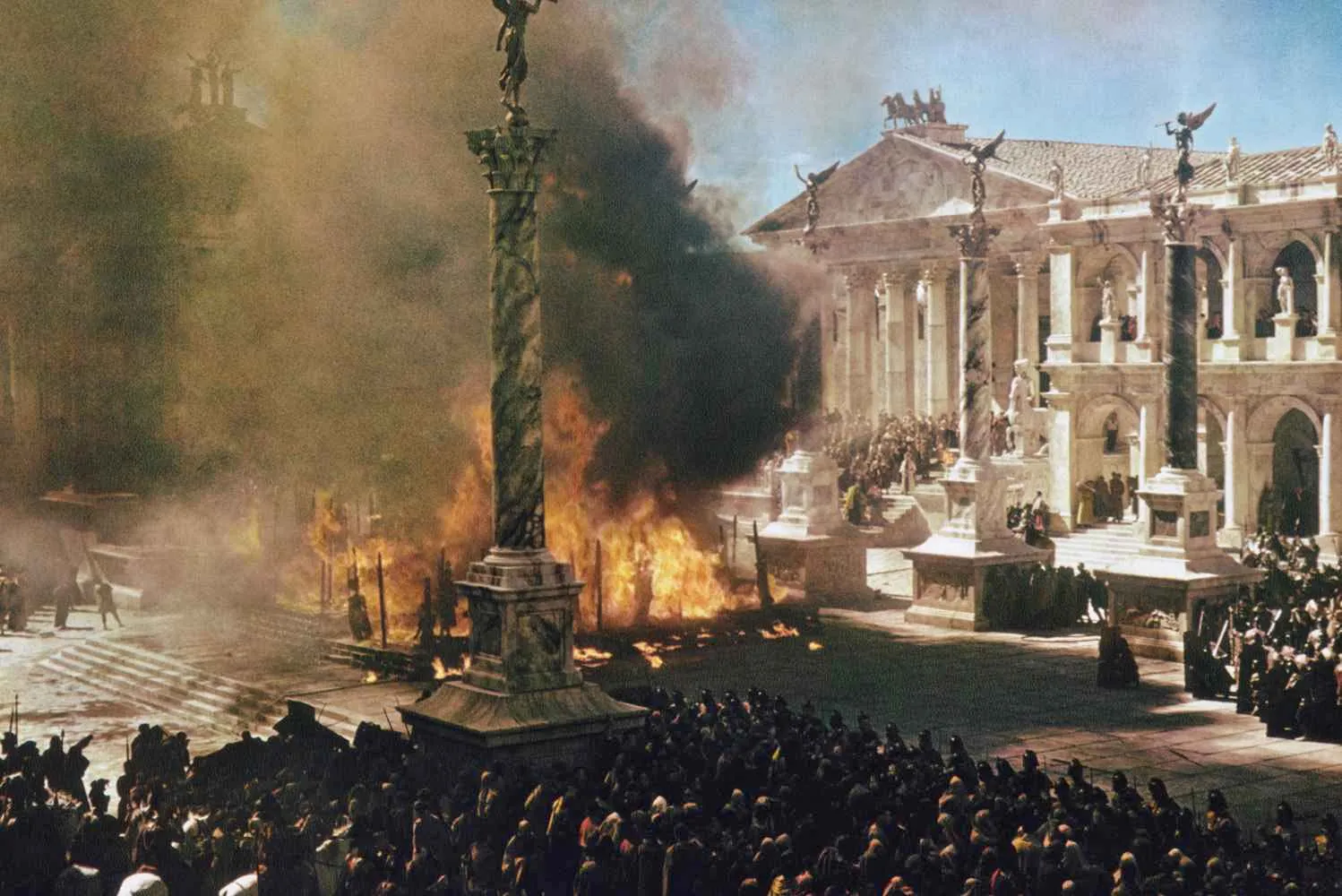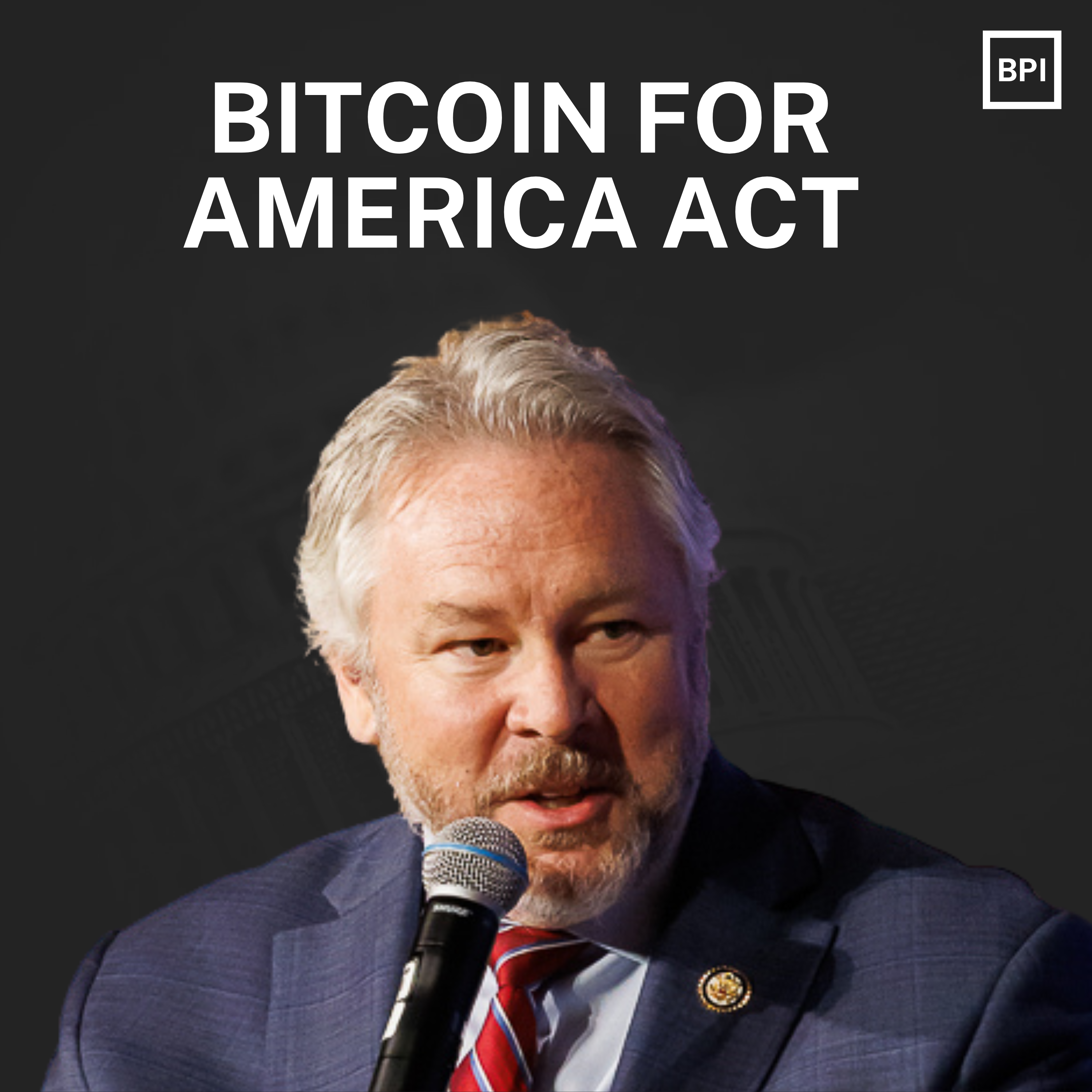Republic or Empire?
In this blog post, Senior Fellow Natalie Smolenski argues that central bank digital currencies herald the collapse of America's democratic institutions. To distinguish our political economy from our authoritarian adversaries, we must reject CBDCs.

Today, the United States faces a monumental choice:
Will we preserve our tradition of liberty and remain a functioning representative democracy?
Or will we stay on the course of authoritarianism and global power projection that has characterized our reign as a world empire?
Many in the political class would have you believe that we can have both–that there is no trade-off involved between republic and empire. That may be true–for a time. But it can't last forever. Like all trade-offs, it is constrained by the material fact of resource scarcity: there is no way to print enough money, deploy enough manpower, buy or manufacture enough weapons, punish enough crime, and control enough productive industry such that a universal peace-through-domination can be enforced globally, forever.
It is sometimes easy for governments to overlook the fact of resource constraints, since they have the sovereign privileges of issuing currency, taxation, and a monopoly on legitimate violence. In the world of business, however, scarcity is often more intuitive. Any semi-competent CEO understands that the fastest way to run her business into the ground is to overspend on lines of business or other initiatives that increase costs without generating the revenue needed in the timeframe required to cover those costs. Such a business may be able to float on venture capital or other capital inflows if its leadership is particularly talented at "selling the vision", but eventually the vision either meets with reality, or the company combusts.
So it is with countries and empires. When debts come due, assets get triaged, and things must go. Often, the first things to go are the intangible assets–a culture of respect, individual autonomy, and collective freedom. Politically, these things very quickly become "things we can no longer afford". But material resources get sold off as well.
Imperial expansion and domination have always exacted profound costs on the people inhabiting the empire. Whatever they might gain in feelings of national pride and early-stage resource inflows, they sacrifice in quality of life over time. In the case of the United States, we have seen our manufacturing sector (and middle class) hollowed out; our currency devalued (the dollar has lost 96% of its value since its introduction in 1913); generations of young people traumatized in foreign wars that they can't connect to any improvement in their prospects or standards of living; greatly increased foreign ownership of U.S. hard assets and equities; and the erosion of our democratic traditions and institutions. American literacy rates, real median income, life expectancy, and health outcomes are all stagnating or declining. Trust in government–including the electoral process–is at generational lows, and talk of civil war is heard more frequently in online forums and even on certain mainstream media outlets. We can no longer agree on what is true, on what is valuable, and on what we should do together as a people–on what the American project means.
These are all signs of civilizational decline.
The Roman Empire is an instructive historical example. While leaving much to be desired, its republican era was characterized by real deliberative governance by Roman citizens. As the Empire expanded, however, Rome faced mounting resource constraints that led to domestic civil strife and, eventually, the exercise of tyranny. It was only a matter of time before the Empire was carved up into smaller regions.
In the trade-off between republic and empire, empire is often the easier path to take. Ambitious rulers and popular demagogues often believe that domination is required for a country to be powerful. Our main global rivals today–Russia and China–are choosing the path of empire in real time. As a result, "tranquility" is not the adjective any informed observer would use to characterize these countries' domestic situations. While these governments exercise significant and stringent controls over the press as well as their populations, they cannot completely contain the stories of poverty, corruption, protest, and human rights abuses that characterize their political realities.
It is with this frame in mind that the Bitcoin Policy Institute has published our white paper, "Why The U.S. Should Reject Central Bank Digital Currencies (CBDCs)." CBDCs are only the most recent example of the slow noose-tightening around the neck of the American republic–surveillance and control in the name of ensuring political stability and American global pre-eminence. The premise behind CBDCs is simple: eliminate physical cash, the last vestige of autonomous financial transacting, and give the state full visibility into all economic activity at every possible social scale. As programmable cash, CBDCs would serve as a tool of monetary policy: negative interest rates, direct currency confiscation, and the ability to control when, with whom, and how much money anyone transacts with, anywhere in the world.
Quite simply, the introduction of CBDCs eliminates a cornerstone of political liberties–the freedom to transact–and presumes citizens guilty until proven innocent. It reverses the burden of proof from the state to the individual, compounding an imbalance of power that is already egregious.
What is worse, most Americans are completely unaware of what CBDCs are, or that the decision about whether or not to implement them is already well underway without any real popular deliberation. This is another sign of the collapse of democratic institutions. The approaching advent of CBDCs should generate a feeling of urgency: it is a clarion call that the window to salvage our republic is closing.
In short, CBDCs are but one symptom of the consolidation of state power at the expense of individual power, a global trend which is intensifying at the pace of technological development. Yet a republican system of government depends upon empowered individuals–an empowered civil society–to function. As governments increase their control over civil society, even if their rationale is that it is "for the public good", they destroy the possibility of popular self-government and solidify the system of government-by-elites. Over time, this becomes a vicious cycle: more elite control becomes necessary to minister an increasingly arcane system to a restive and disempowered population, whose avenues for contestation and dissent are progressively narrowed. This creates the conditions for violence as the only remaining recourse for political protest.
By rejecting CBDCs, the American government can declare that individual autonomy is a core value of our political system. But if we are truly to become a republic again, the American people must do more: we must revoke the blank check that we have written for our government to make war at its sole discretion and act as the world's policeman. This blank check has racked up sovereign debt–both fiscal and moral–that is now coming due, and the American people are the ones paying the bills.
America's eighth Secretary of State and sixth President, John Quincy Adams, famously declared that America "goes not abroad, in search of monsters to destroy. She is the well-wisher to the freedom and independence of all. She is the champion and vindicator only of her own. She will commend the general cause by the countenance of her voice, and the benignant sympathy of her example."
In other words, the most powerful influence America can have on the world is by being who we are: by living our values. In the recent past, we sacrificed those values in the pursuit of empire, to the detriment of both the American people and the world. We can't simply reverse course–after all, there is no editing the past–but we can, and must, choose to become better in the future.
We can do this. There is never a final arrival at the ideal pole of a more perfect union–there is only its good-faith pursuit. So long as enough Americans live our commitment to that project, we are the republic we claim to be.



.svg)



.png)
%20copy%205.png)
